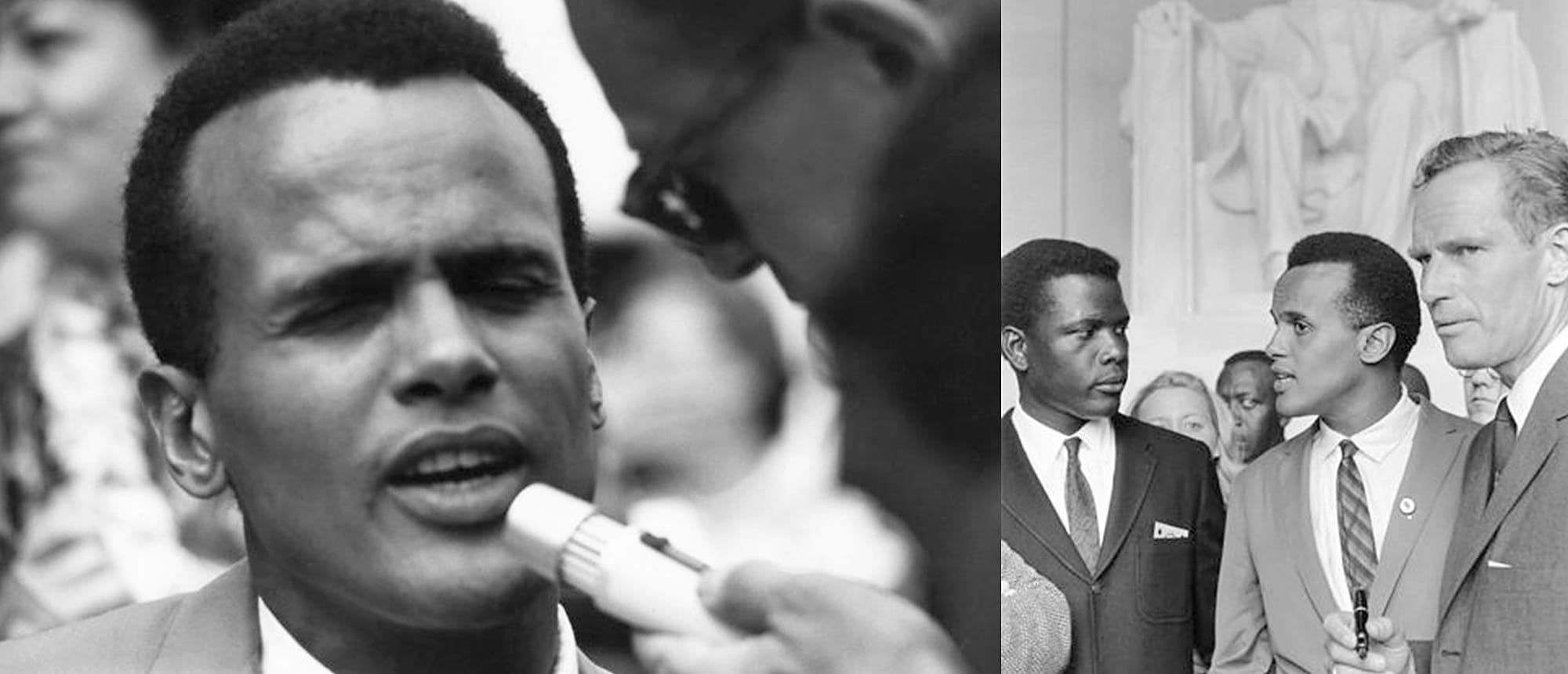Harry Belafonte On Charlottesville, Trump And Protest
Harry Belafonte is a living legend. As a close associate of Martin Luther King Jr., Belafonte played an instrumental role in many of the crucial moments of the civil rights movement. On Oct. 18, he will speak at the Shubert Theatre in New Haven for the 50th anniversary fundraiser of Christian Community Action, a New Haven-based anti-poverty organization.
This is an exhausting time politically. How do you keep your energy up at age 90?
I am somewhat mindful of the fact that I’ve spent the last 70 years of my life working on social reform. Lecturing and touring, and doing a lot of work artistically in songs and music and dealing with my colleagues, only to find that now, instead of being rewarded for 70 years of a commitment toward social change, we are sitting here at the gateway of disaster with this administration. There’s still just a lot of work to be done. Until we can galvanize a group of people who are willing to talk truth to power, and to talk on issues, and to help make everything that we aspired to during the last century a fact of our lives, it’s very hard for me to sit and watch all of this go by.
We are speaking two days after a gathering of the far right in Charlottesville, Virginia, left one counter-protester dead, and many injured. Did the events of the weekend shock you?
They don’t shock me as much as they puzzle me. They puzzle me because this nation has been through a lot, especially during the 20th century when civilization began to move along paths that were fairly new to the global family. Up until the mid-20th century, most of the countries that are independent — and had to become sovereign nations — didn’t exist. There are different modes of expression that are new to us, and I think instead of this country being able to boast of a leader who encapsulates all that is good in the previous years, we have a leader that is telling that our lives and our commitments of the past were for naught. That should be made unacceptable.
Of the current wave of social struggle, what do you see as similar to the era of the civil rights movement? And what do you see as different?
One of the things that I’m mindful of, is the extent to which the clergy has stepped into the fray and taken command and a sense of responsibility to speak out against what’s going on. A lot ministers showed up in Virginia. I was delighted because for a long time I’ve been fed up with the church. It was very, very negative. It didn’t speak from the pulpit. It didn’t speak for the things that were in the best interests of humankind. The fact that the clergy stepped in so early [in Charlottesville] was an indication that there’s a willingness among silent communities to become heard again. I thought that was a positive response. However, we don’t have a lot of the things we had before. We don’t have a strong labor movement in this country. Decades ago, we had an active labor movement in this country. Workers and organized labor took on a lot of responsibility when it came to social process. Well, that constituency seems to be mute. It doesn’t exist. The church was fairly silent, but that emerged now. I’m just surprised that there aren’t more youthful and new voices being heard loudly and clearly. I think they’re there; they just aren’t being heard.
Something we are losing living memory of is the Hollywood blacklist during the McCarthyism era. You were blacklisted. Do you think a blacklist could happen again?
Yes. I think with voices like Donald Trump being heard in such reckless ways, anything is possible. I don’t think the mood being reflected at the moment, with all the violence that’s going on and the neo-fascist movement that’s rising again, would not have happened had Donald Trump not provoked the belief by many citizens that racism has a place in the culture of this nation. It’s fascinating. The threat to democracy is no longer some totalitarian state in some faraway place smothering its citizens. America sits at the threshold of the new decline, whereas we were the hope for the future, we’re now the management of our own destruction. That’s not what this whole journey, from my perspective, was about. It’s not what the Kennedys were about, not what Eisenhower was about, it’s not what Dr. King was about, it’s not what the youth movement was about. It’s frustrating. I had occasion to say the other day, in this battle on issues of race, I don’t know that there’s much more that can be expected of the black citizens of America. We’ve been at the forefront of these changes for so long.
What is the best way to resist the neo-fascist turn?
We have to understand that we are not presented with a canvas of leadership that speaks to the best in the human heart, and we live in a nuclear time. Trump cannot be treated casually, if for nothing more than the fact he has his hand on the button of crisis.

